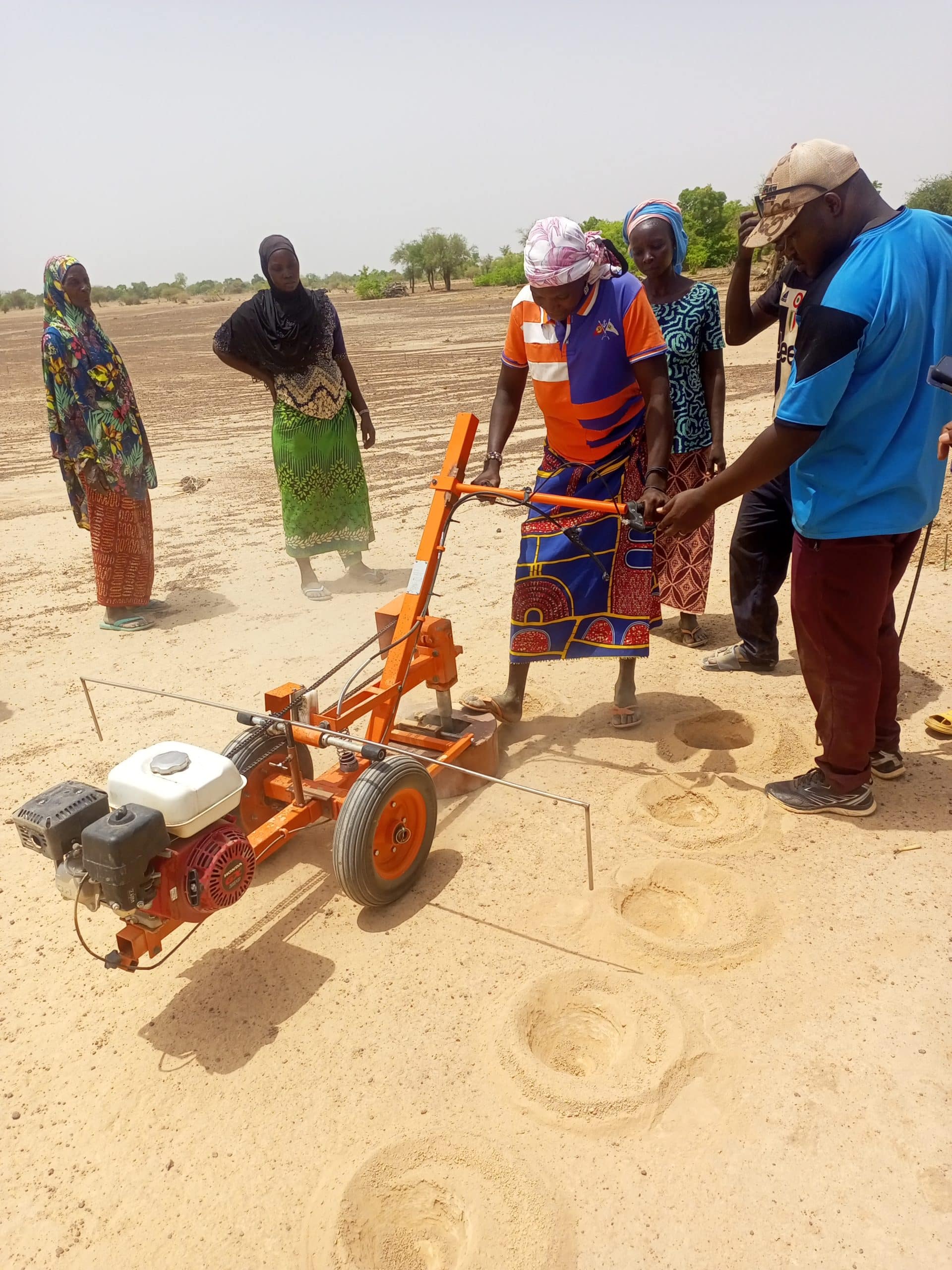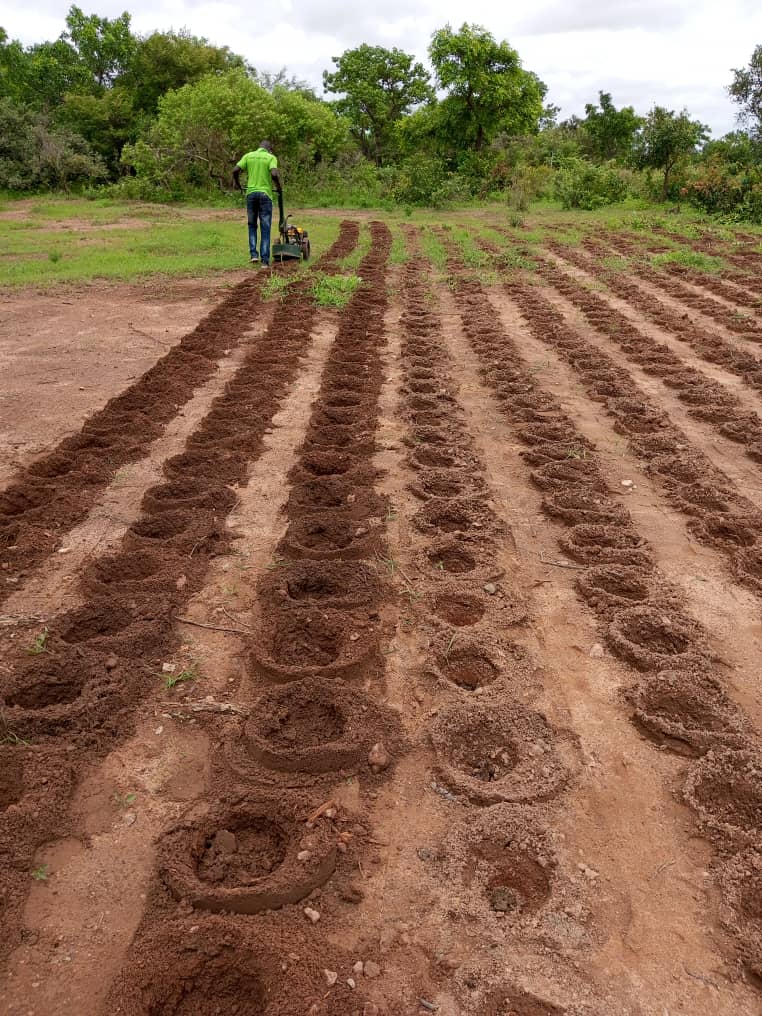Zainer
A low-cost machine for climate resilient agriculture
Due to climate change, rainfall patterns in Africa have become less predictable. As a result, African farmers experience production loss for their main rain-fed staple crops. Especially for smallholders, this poses a serious risk for food security and family income. Indigenous practices of conservation farming and regenerative agriculture can largely mitigate these risks, but farmers see those traditional practices as too labor-intensive and not economically viable. Affordable mechanization of climate-smart agricultural practices can overcome the drawbacks. Practica, therefore, initiated the development of a simple tool to quickly and cheaply produce small basins or pits for local rainwater retention. We have named this tool 'Zaïner', as a reference to the traditional West African practice of producing small plantholes, called Zaï.
Our innovation
When farming rain-fed grain crops like sorghum, millet or maize in arid climates, even short periods of water stress can cause partial or full loss of the crop. The in the Sahel indigenous Zaï farming method combines digging a plant hole with adding organic material and creating a water buffer in the soil. This allows the plant to survive longer without rain and doubles the yield compared to farming without the Zaï holes. However, preparing the land manually with 15.000 to 30.000 plant holes per hectare requires labor that is costly or simply not available. As a result, most farmers have moved away from this traditional planting method.
Our field partners in Burkina Faso realized the potential of the Zaï planting method as a climate resilient cropping system and Practica was asked to look at means for affordable and efficient mechanization of Zaï, being experienced in low-cost technology design and commercialization. This resulted in a first prototype of the mechanized the Zaï pit drill which we started testing in Burkina Faso with farmers in 2021. Farmer feedback resulted in a series of design iterations and a market-ready model for the 2024 cropping season.
Our design
The Zainer is a vertical soil drill, mounted on a two wheeled cart and powered by a small 5hp petrol engine. Excavated soil is deposited on the down-stream side of the Zaï pit to make sure that run-off water from the field is directed into the pit for local infiltration. The design of the Zainer has been optimized for fuel efficiency and drilling speed to minimize the operational costs for the farmer.
Operating the Zainer can be comfortably done by both female and male farmers. Depending on the soil conditions, farmers are able to produce up to 17 Zaï plantholes per minute and 1 ha of land can be prepared within 5 days (compared to 300 hours of labor for manual Zaï). The drill bit can easily be replaced and be adapted to different soil conditions and desired plant hole dimensions.


Our ambitions
We work towards secured and increased yield even with irregular rainfall for smallholder farmers. Tests during the 2022 and 2023 growing seasons in Burkina Faso have shown that the additional profit outweighs the additional costs for land preparation with the Zainer. With this positive farmer-level business case we work towards commercial introduction of the Zainer.
With a target sales price of €1300, the Zainer is too expensive for private ownership for smallholder farmers but very suitable for ownership by cooperative or an agricultural service provider. With a capacity of 1ha per week, one service provider can do land preparation for multiple smallholders. With its robust and simple design, local production of the Zainer will be an option. We currently work with Futurepump India Pvt. Ltd for production and distribution of Zainer machines or kit for local assembly.
Practica supports piloting the Zainer, establishing necessary procurement channels and train enterprises in assembly, production, sales and after-sales services.
See the Zainer in action
View or download this brochure in PDF
Interested by the Zainer?
Contact us! And for more information on our impact, read our page on irrigation.
